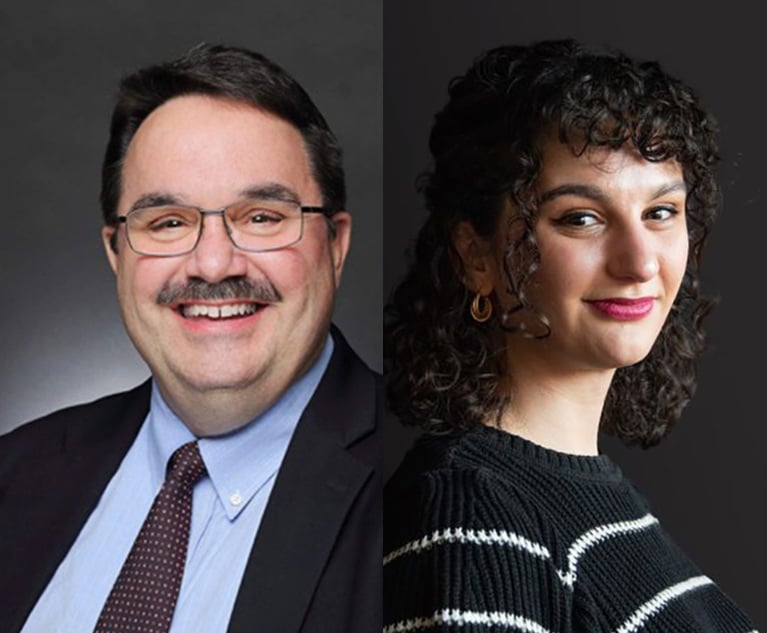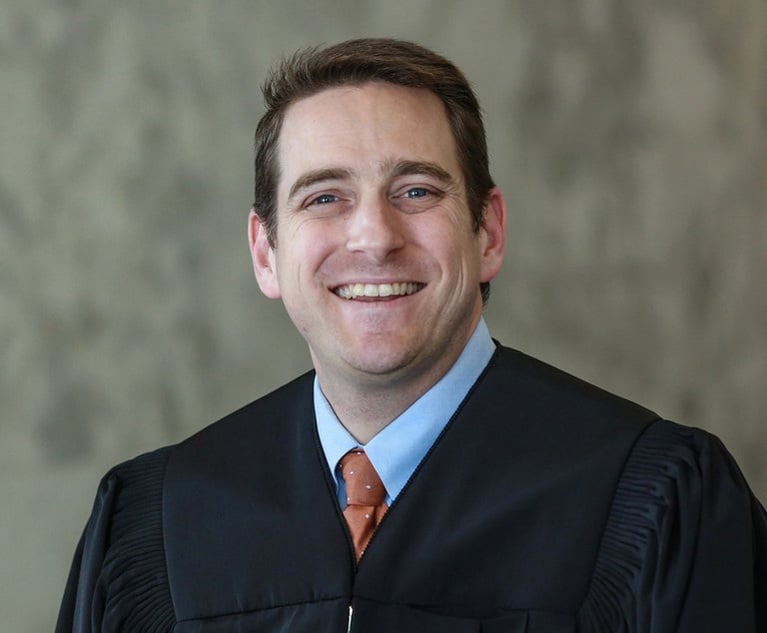Pandemic Is Expected To Spawn Massive Civil Trial Changes
James M. Wagstaffe discusses how the pandemic will permanently change civil trials, why we'll see more A.I. and holographic presentations, and why cross-country flights for brief court or deposition appearances will become rare.
December 01, 2021 at 04:18 PM
3 minute read
Podcast
For a profession based largely on face-to-face encounters, the business of lawyering was jolted when the pandemic took hold. But even as parts of the judicial system shut down, adaptations quickly emerged to allow other parts to continue to function.
In this podcast, James M. Wagstaffe explains how technology rescued the legal profession and will continue to shape the way the profession operates with greater economies of scale.
As Jim puts it, civil trials "will be massively changed" in the long run. Many will be hybrid in nature, with some participants showing up in the courtroom and others plugging in remotely. Jim offers another prediction: "We're not going to be flying witnesses from faraway places if they are going to be testifying for 30 minutes."
During the pandemic, courts developed new protocols, such as permitting remote attendance and creating new rules for electronic exhibits. In addition, state legislatures extended many statutes of limitations.
Jim says some of the changes are not surprising and are more like "old wine in a new bottle." He notes, for example, that for decades courts have allowed witnesses to testify remotely and lawyers to take telephonic depositions. Those previously less-common practices are now moving to center stage.
And Jim expects the enhanced reliance on technology will lead to more changes in the courtroom, such increased use of artificial intelligence and holographic presentations.
"What we are seeing is a sea change adapting to these new world economies that I think will transcend the pandemic itself," Jim notes.
About Jim Wagstaffe:
James (Jim) M. Wagstaffe is a trial attorney in San Francisco who handles a diverse range of litigation matters. His practice focuses on complex litigation, professional and governmental representation, will and trust disputes, legal ethics, and First Amendment matters. In addition, Jim is recognized as an authority and frequently is consulted by other law firms and clients alike on complicated civil procedure, ethics, attorneys' fees and trial practice issues. See, e.g., Delta Forensic Engineering, Inc. v. Delta V Biomechanics, Inc. (C.D. Cal. 2021); O'Keefe v. Target Corporation (N.D. Cal. 2020).
Jim is also the author of two widely-used, multi-volume Practice Guides (one on federal practice and the other on California practice, both published jointly by The Wagstaffe Group and Lexis Nexis, 2021). In recognition of his extensive experience as a litigator and contributions to developments in the law, Jim was appointed by Chief Justice John Roberts in 2015 to the Federal Judicial Center Foundation Board where he currently serves as its Chair.
In addition, Jim teaches Civil Procedure at UC Hastings College of the Law and regularly publishes articles on civil practice and first amendment issues. And for more than thirty years, he has been responsible for development and delivery of various annual forums, seminars, webinars, and workshop sessions directed at educating federal judges and their respective clerk staffs on civil procedure and other aspects of federal law. In recognition of this work, Jim received the coveted Judge John R. Brown Award for Judicial Scholarship and Education awarded by the Federal Judicial Center in recognition as the top teacher of federal judges in the country.
NOT FOR REPRINT
© 2025 ALM Global, LLC, All Rights Reserved. Request academic re-use from www.copyright.com. All other uses, submit a request to [email protected]. For more information visit Asset & Logo Licensing.
You Might Like
View All
Scan In Progress: Litigators Leverage AI to Screen Prospective Jurors
1 minute read
Legal Speak at General Counsel Conference East 2024: Match Group's Katie Dugan & Herrick's Carol Goodman
2 minute read
Legal Speak at General Counsel Conference East 2024: Eric Wall, Executive VP, Syllo
1 minute readTrending Stories
- 1Class Action Litigator Tapped to Lead Shook, Hardy & Bacon's Houston Office
- 2Arizona Supreme Court Presses Pause on KPMG's Bid to Deliver Legal Services
- 3Bill Would Consolidate Antitrust Enforcement Under DOJ
- 4Cornell Tech Expands Law, Technology and Entrepreneurship Masters of Law Program to Part Time Format
- 5Divided Eighth Circuit Sides With GE's Timely Removal of Indemnification Action to Federal Court
Featured Firms
Law Offices of Gary Martin Hays & Associates, P.C.
(470) 294-1674
Law Offices of Mark E. Salomone
(857) 444-6468
Smith & Hassler
(713) 739-1250









